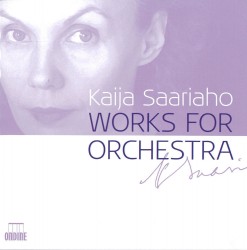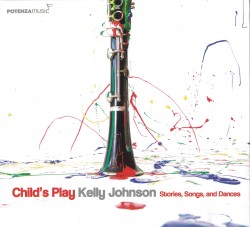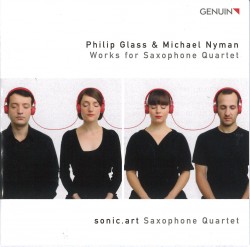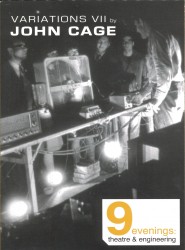Kagel – Das Konzert; Phantasiestück; Pan - Michael Faust; Sinfonia Finlandia;
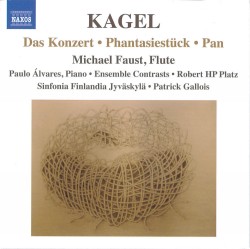 Kagel – Das Konzert; Phantasiestück; Pan
Kagel – Das Konzert; Phantasiestück; Pan
Michael Faust; Sinfonia Finlandia;
Patrick Gallois
Naxos 8.572635
Throughout his life the Argentinean-German composer Mauricio Kagel (1931–2008) explored every aspect of the evolving musical language of his time, including free improvisation, open form, electronic music, music theatre and purely instrumental music. He taught and organized forums for new music and was a masterful conductor of his own works. He also held an exceptional interest in broadcast media, completing several thought-provoking films in the 1960s for German television and producing radio programs of new music. His appearances in Toronto with New Music Concerts are fondly remembered by all who experienced them.
In his later years Kagel’s music took on an aspect one might call “post-modern,” freely incorporating the extended instrumental techniques of the 20th century in a frequently ironic dialogue with traditional musical conventions. These shadows of the hallowed past occur frequently in the late period works on this disc. Kagel’s 1988 Phantasiestück, a quasi-Schumannesque work that devolves from an atonal to a purely diatonic realm, appears in two versions, one for flute and piano with pianist Paulo Alvares and an expanded version with string quartet and two clarinets performed by Michael Faust’s own Ensemble Contrasts conducted by Robert HP Platz. The brief and delightful Pan for piccolo and string quartet (1985) is a pastiche on Papageno’s pan-flute solo from Mozart’s Die Zauberflöte. Das Konzert is a theatrical work that was written at the request of Michael Faust and premiered by the Deutsche Oper am Rhein in 2003 with a dozen performances in Duisburg and Düsseldorf. It is a schizophrenic “anti-concerto” for flute and chamber orchestra expertly performed here by the Sinfonia Finlandia Jyväsklä, sympathetically led by fellow flutist turned conductor Patrick Gallois. This is an entertaining yet thought-provoking disc that repays repeated listening.
Editor’s Note: As a long standing friend of the composer, Canadian flutist Robert Aitken was invited to share the soloist’s role in the creation of Kagel’s Das Konzert, alternating the first performances with Michael Faust and giving the Düsseldorf premiere. Aitken went on to give the world premiere performance of the concert version of the work with Esprit Orchestra in Toronto in January 2004.


